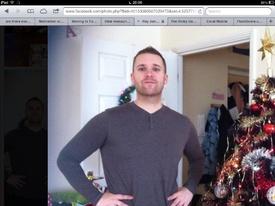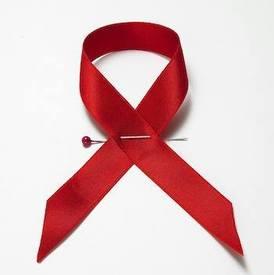10 days in and lost 24 pounds (Answers)

ChrisLole24
Posts: 85 Member
Hey guys just wondering if anyone had any possible answers on why I'm losing weight so fast. It's been 10 days and I have lost 24 pounds so far. I am eating 1300 calories a day and my exercise of choice is a brisk walk for 45 minutes of the day. I started at 291 and I am a 5 foot 10 24 year old male. I want to do this the right way and I know that way is losing 1-2 pounds a week not as much as I am. Thanks in advance guys! 
0
Replies
-
A substantial weight loss for someone your size at the beginning is not out of the ordinary. The bigger you are, typically, you will lose weight quite fast at the beginning of your weight loss journey. Most of it will be excess fluids (water weight) leaving your body. You may continue to lose at a fast rate but it will eventually slow. I don't think you should be alarmed!!!
However, you are eating at a really low deficit! You are male so you should at LEAST be getting 1800 calories. You will certainly lose weight on 1800 at your size!0 -
It's going to be mostly water weight loss at this stage. Why are you only eating 1300 caloires? Is that doctor recommended?0
-
Thanks for your help guys! I am eating at 1300 so I could lose 3.5 pounds a week. I thought that was the issue with my calories but I wasn't getting hungry at all eating at those calories. Glad to hear it has a lot to do with water and I wasn't given a gypsy curse like the guy in the movie "Thinner" haha. Thanks guys
 0
0 -
People on low calorie diets often lose weight very quickly and most of that initial weight loss is not fat. Most people that go on these diets also gain the weight back after they stop "dieting". Steady, long term weight loss is usually not achieved on such a low cal plan, but through a sustainable calorie deficit and exercise. Also, if being healthy is a factor for you, then not feeding your body (i.e. only giving it 1300 cals a day) will not make you healthy. For me, being healthy, is what weight loss is all about.
Read this. Do it! http://www.myfitnesspal.com/topics/show/654536-in-place-of-a-road-map-2-0-revised-7-2-12
Good luck to you and Welcome to MFP! I've learned a TON on these boards.0 -
This is not true. A pound of fat provides 3500 calories; a pound of muscle (lean body mass) only 600. Fat can be metabolized at a rate of 31.4 calories per pound of fat per day. You take your BF% and your weight and figure out how much fat you have. As long as you stay under what your body can provide you will burn mostly fat (there is always some LBM lost also). Also, you can take your TDEE, your diet and the amount you are losing and calculate how much deficit you have and compare that to the loss and it will be really obvious that you are mostly losing fat.People on low calorie diets often lose weight very quickly and most of that weight loss is not fat.
A lot of people do have trouble adjusting after losing weight that way, but your doom is not imminent. It does work for some of us. A lot of your early loss is water weight and the rest will be mostly fat loss.
There is some truth to establishing a good diet for long term health being the optimal thing to do, but some of us need the initial quick loss to be able to stay motivated.0 -
I know everyone's different but I'm 238 (Started at 266) and I've lost 30lbs eating around 1900 per day. I'd up yours slightly.0
-
Thanks for your help guys! I am eating at 1300 so I could lose 3.5 pounds a week. I thought that was the issue with my calories but I wasn't getting hungry at all eating at those calories. Glad to hear it has a lot to do with water and I wasn't given a gypsy curse like the guy in the movie "Thinner" haha. Thanks guys

Sorry guy, but 3.5 pounds/week isn't good. It'll end up shutting down your metabolism so fast it'll take a long time to get it back to a normal state. A quick plug in of your numbers at Scooby's workshop shows you have a BMR of 2600, and a TDEE (assuming no exercise at all) of 3125. If you exercise 3-5 times a week, your TDEE would jump to about 4,000 calories a day. Trying to do 1300 calories, when your body needs at least 2600 to survive is simply screaming for your metabolism to go into starvation mode and shut down to preserve itself. No one I know if ever recommends trying to do 3.5 pounds/week. It just isn't a good idea. It may pay off in the short run, but in the long run it'll only be killing your plans. Simply put, don't do it.
The weight didn't come on at 3.5 pounds a week. Why do you think you should be able to take it off at that rate? Quick fixes don't work. Slow and stead does win the race. .0 -
I am no expert in this by all means, but your calorie intake hasn't really been around 1300 on your food diary. And that doesn't take into account your exercise routine. It's been anywhere between 700-1200 average. IMHO, that is way too low for a male. You may lose a lot of weight initially, but your body will go in to starvation mode and it will halt all together. You don't want that happening either.0
-
Hey guys just wondering if anyone had any possible answers on why I'm losing weight so fast. It's been 10 days and I have lost 24 pounds so far. I am eating 1300 calories a day and my exercise of choice is a brisk walk for 45 minutes of the day. I started at 291 and I am a 5 foot 10 24 year old male. I want to do this the right way and I know that way is losing 1-2 pounds a week not as much as I am. Thanks in advance guys!

Over the first week or so, you probably lost a lot of water weight which will acount for some of this. However, that phase only last for 1-2 weeks for most people. You will be able to get a better picture of how fast you are losing after the third week or so.
Honestly though, unless your doctor recommended 1300 calories a day, I really think you should be eating more and I suspect that you will still be losing at too fast a rate even after the water loss ends. I would suggest that you recalculate using whatever tool you are using for a weight loss of about 1.5lbs per week and see what happens. If you are still losing too fast, start eating your exercise calories back. If you find that you are having a hard time eating all of your calories, stop eating "diet" food, like no fat dairy and 100 calorie snack packs and start eating the real stuff. When you lose enough weight that you feel you aren't getting enough calories for the day, you can decide whether you want to switch off to more diety foods.
You will have to find what works for you personally, but just to give you an idea: I started at 316lbs and am a 5'6" female. I was 32 at the time. My starting calorie intake was in the realm of 1900 calories per day. On some weeks I did lose more than 2lbs in spite of following my plan, but I never lost more than 3 and it was usually just one week out of many. Right now I am 35 and 216lbs. I am still eating 1570 calories per day plus eating back all of my exercise calories and losing about 1.5lbs per week.0 -
This is not true. A pound of fat provides 3500 calories; a pound of muscle (lean body mass) only 600. Fat can be metabolized at a rate of 31.4 calories per pound of fat per day. You take your BF% and your weight and figure out how much fat you have. As long as you stay under what your body can provide you will burn mostly fat (there is always some LBM lost also). Also, you can take your TDEE, your diet and the amount you are losing and calculate how much deficit you have and compare that to the loss and it will be really obvious that you are mostly losing fat.People on low calorie diets often lose weight very quickly and most of that weight loss is not fat.
A lot of people do have trouble adjusting after losing weight that way, but your doom is not imminent. It does work for some of us. A lot of your early loss is water weight and the rest will be mostly fat loss.
There is some truth to establishing a good diet for long term health being the optimal thing to do, but some of us need the initial quick loss to be able to stay motivated.
I should have said "initial weight loss"... From everything I've read about low cal, high cardio plans, the body first burns stored glycogen, then readily available muscle, then fat stores. It's when you eat at a 15-20% deficit (30% for the obese) and incorporate strength training that the glycogen stores and muscle mass are "protected" (for lack of a better word) and efficient fat loss occurs. Please correct me if I'm wrong...0 -
OK, but I won't come back here and debate this to death if you don't believe it. Glycogen is first, fat stores are second, not muscle. Another poster calculated the likely deficit for the OP and it would require about 4 pounds a day of muscle at 600 calories per pound. The OP lost 24 pounds in 10 days. I think that is about 8 pounds of water and 16 of mostly fat. Muscle would not supply enough energy for the deficit; the math just doesn't work.
This is not true. A pound of fat provides 3500 calories; a pound of muscle (lean body mass) only 600. Fat can be metabolized at a rate of 31.4 calories per pound of fat per day. You take your BF% and your weight and figure out how much fat you have. As long as you stay under what your body can provide you will burn mostly fat (there is always some LBM lost also). Also, you can take your TDEE, your diet and the amount you are losing and calculate how much deficit you have and compare that to the loss and it will be really obvious that you are mostly losing fat.People on low calorie diets often lose weight very quickly and most of that weight loss is not fat.
A lot of people do have trouble adjusting after losing weight that way, but your doom is not imminent. It does work for some of us. A lot of your early loss is water weight and the rest will be mostly fat loss.
There is some truth to establishing a good diet for long term health being the optimal thing to do, but some of us need the initial quick loss to be able to stay motivated.
I should have said "initial weight loss"... From everything I've read about low cal, high cardio plans, the body first burns stored glycogen, then readily available muscle, then fat stores. It's when you eat at a 15-20% deficit (30% for the obese) and incorporate strength training that the glycogen stores and muscle mass are "protected" (for lack of a better word) and efficient fat loss occurs. Please correct me if I'm wrong...
I am not saying that drastic diets are the best way to go, just that fear of your muscle being metabolized or your metabolism shutting down are not supported by science and not observed in studies. The thing to worry about is whether or not you are in good enough shape to handle the stress and whether you can make the switch to healthy eating after losing weight.
I lost 50 pounds eating 1200 calories a day and have since adapted and I am losing a little more slowly and adjusting. I paid attention to how much I was eating and burning, had my BF% checked, ran the numbers and they made sense. I lost about 75% fat. Many others report better numbers; 80% and higher is common. This works for some people, but not everyone. Some people are able to change their diet, lose very slowly and stick with it until they get to a healthy weight. That works for some people, but not everyone.
Also, keep in mind that when people get gastric bypass or lap band surgery, they are typically put on a diet below 1000 calories with medical supervision. Having a doctor check on you does nothing to make your metabolism any different or cause your body to use fat instead of muscle to make up the deficit. It's just what normally happens and the doctor just checks in to make sure you are sticking with it, that there aren't surgical complications, your blood work is good (you are getting proper nutrients) and handling the stress of a VLC diet.0 -
It'll slow down. I think if I were you I'd go to 1500 at least, because you are male, but I don't think you'll starve if you don't for awhile. The larger you are the safer it is to lose it fast. I do think that it might be hard to stick to a 1300 calorie diet. My husband would start to look at the cats with longing at that much of a deficit, and I'd quickly tire of being around him because he'd be grumpy.0
-
OK, but I won't come back here and debate this to death if you don't believe it. Glycogen is first, fat stores are second, not muscle. Another poster calculated the likely deficit for the OP and it would require about 4 pounds a day of muscle at 600 calories per pound. The OP lost 24 pounds in 10 days. I think that is about 8 pounds of water and 16 of mostly fat. Muscle would not supply enough energy for the deficit; the math just doesn't work.
This is not true. A pound of fat provides 3500 calories; a pound of muscle (lean body mass) only 600. Fat can be metabolized at a rate of 31.4 calories per pound of fat per day. You take your BF% and your weight and figure out how much fat you have. As long as you stay under what your body can provide you will burn mostly fat (there is always some LBM lost also). Also, you can take your TDEE, your diet and the amount you are losing and calculate how much deficit you have and compare that to the loss and it will be really obvious that you are mostly losing fat.People on low calorie diets often lose weight very quickly and most of that weight loss is not fat.
A lot of people do have trouble adjusting after losing weight that way, but your doom is not imminent. It does work for some of us. A lot of your early loss is water weight and the rest will be mostly fat loss.
There is some truth to establishing a good diet for long term health being the optimal thing to do, but some of us need the initial quick loss to be able to stay motivated.
I should have said "initial weight loss"... From everything I've read about low cal, high cardio plans, the body first burns stored glycogen, then readily available muscle, then fat stores. It's when you eat at a 15-20% deficit (30% for the obese) and incorporate strength training that the glycogen stores and muscle mass are "protected" (for lack of a better word) and efficient fat loss occurs. Please correct me if I'm wrong...
I am not saying that drastic diets are the best way to go, just that fear of your muscle being metabolized or your metabolism shutting down are not supported by science and not observed in studies. The thing to worry about is whether or not you are in good enough shape to handle the stress and whether you can make the switch to healthy eating after losing weight.
I lost 50 pounds eating 1200 calories a day and have since adapted and I am losing a little more slowly and adjusting. I paid attention to how much I was eating and burning, had my BF% checked, ran the numbers and they made sense. I lost about 75% fat. Many others report better numbers; 80% and higher is common. This works for some people, but not everyone. Some people are able to change their diet, lose very slowly and stick with it until they get to a healthy weight. That works for some people, but not everyone.
Also, keep in mind that when people get gastric bypass or lap band surgery, they are typically put on a diet below 1000 calories with medical supervision. Having a doctor check on you does nothing to make your metabolism any different or cause your body to use fat instead of muscle to make up the deficit. It's just what normally happens and the doctor just checks in to make sure you are sticking with it, that there aren't surgical complications, your blood work is good (you are getting proper nutrients) and handling the stress of a VLC diet.
I wan't debating... I'm learning. Thank you for your reply.0 -
I am no expert in this by all means, but your calorie intake hasn't really been around 1300 on your food diary. And that doesn't take into account your exercise routine. It's been anywhere between 700-1200 average. IMHO, that is way too low for a male. You may lose a lot of weight initially, but your body will go in to starvation mode and it will halt all together. You don't want that happening either.
Agreed. Way, way too low. 1300 is already below your BMR (at your height, age, and weight even sedentary would be over 2000), and if you are going even further below it by eating fewer than 1300 and exercising, that it a recipe for trouble. Up those calories! Eat!0
This discussion has been closed.
Categories
- All Categories
- 1.4M Health, Wellness and Goals
- 398.2K Introduce Yourself
- 44.7K Getting Started
- 261K Health and Weight Loss
- 176.4K Food and Nutrition
- 47.7K Recipes
- 233K Fitness and Exercise
- 462 Sleep, Mindfulness and Overall Wellness
- 6.5K Goal: Maintaining Weight
- 8.7K Goal: Gaining Weight and Body Building
- 153.5K Motivation and Support
- 8.4K Challenges
- 1.4K Debate Club
- 96.5K Chit-Chat
- 2.6K Fun and Games
- 4.8K MyFitnessPal Information
- 12 News and Announcements
- 21 MyFitnessPal Academy
- 1.6K Feature Suggestions and Ideas
- 3.2K MyFitnessPal Tech Support Questions









